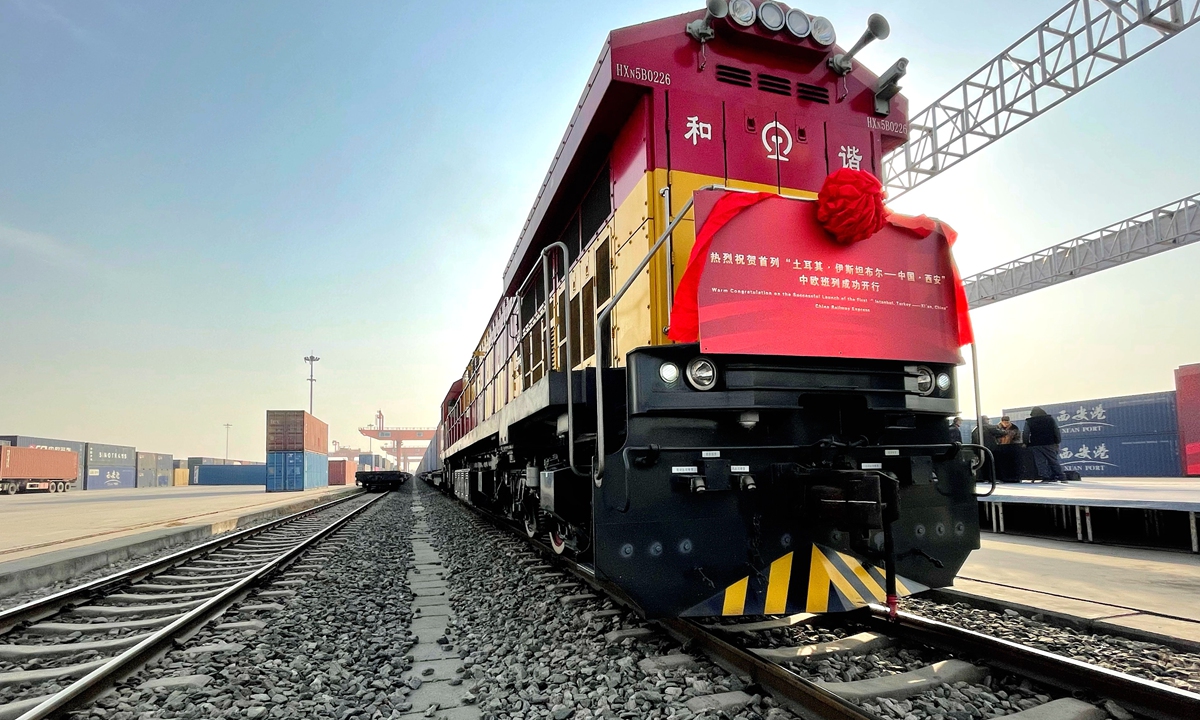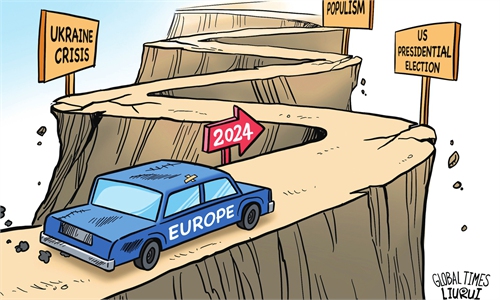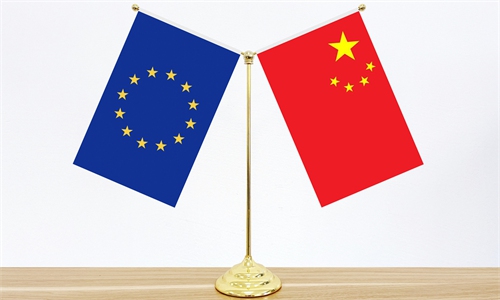
A China-Europe freight train stops in Xi'an, Northwest China's Shaanxi Province. File Photo: CNSphoto
The China Chamber of Commerce to the EU (CCCEU) on Wednesday expressed concerns about the impact of the European Economic Security Package (EESP) presented by the European Commission (EC), warning that the move may shatter the confidence of Chinese businesses investing and operating in Europe.
The EC presented the EESP in Brussels on the same day, featuring revisions of the EU's foreign direct investment (FDI) screening mechanism and addressing aspects of the bloc's outbound investment, export controls, research security, and dual use goods.
This was regarded as part of the follow-up measures by the European Union (EU) targeting countries including China, their major trading partner, over so-called security issues, experts said.
The CCCEU closely monitors the ongoing development of the EU's economic security strategy and it expressed concerns about the impact of the EESP on Chinese companies' investment, trade, and innovation collaboration within Europe, the chamber said in a statement sent to the Global Times late on Wednesday.
Of particular note, the package suggests enforceable rules to tighten FDI screening and introduces measures that might impact the EU's outbound investment, exports, and research collaboration, potentially influencing the confidence of Chinese businesses investing and operating in Europe, the chamber said.
The EU's politically motivated attempt to "decouple" with China has been intensifying in recent years, which has directly contributed to a drop of Chinese investment flows to the region.
In 2022, Chinese investment flows to the EU were $6.9 billion, a 12.2 percent decline from 2021. This was partly attributed to regulatory barriers, as Chinese enterprises shifted from mergers and acquisitions (M&As) to greenfield investment in Europe.
A CCCEU survey of 180 Chinese companies and organizations last year found that 28 percent planned to expand their presence in Europe within the next 1-3 years, with 26 percent intending to increase investment and M&A activities.
There are also expectations within China's business community that the EU will create a more favorable investment and business environment for Chinese enterprises looking to develop in Europe.
On behalf of over a thousand Chinese enterprises in the EU, the CCCEU urged the EU to improve its investment and business climate, including efforts to "respect the global division of labor along global industrial chains, refrain from pursuing obsessive friendshoring in supply chains and trade tools through non-market means, and prevent the 'de-risking' strategy from being generalized to negatively affect industrial sectors."
The EU was also urged to ensure that Chinese enterprises enjoy the same equitable industrial opportunities, market access, and business environment as other enterprises in Europe, while maintaining dialogue and cooperation in the strategic development areas for China and Europe, such as new energy, the digital economy and green economy.
"Chinese enterprises view the European market as crucial to their global expansion and are prepared to intensify investments and engagement in Europe. The hope remains that the EU will foster a fair, non-discriminatory investment and business environment for Chinese companies," the CCCEU said.
Correct mutual perception is the basis for a thriving China-EU relationship and misperceptions can easily lead the relationship astray, causing instability and imbalances, Fu Cong, China's Ambassador to the EU, said in an article on January 18.
A healthy and stable China-EU relationship not only serves the interests of the two sides, but also meets the expectations of the wider global community, the ambassador noted.
Global Times


